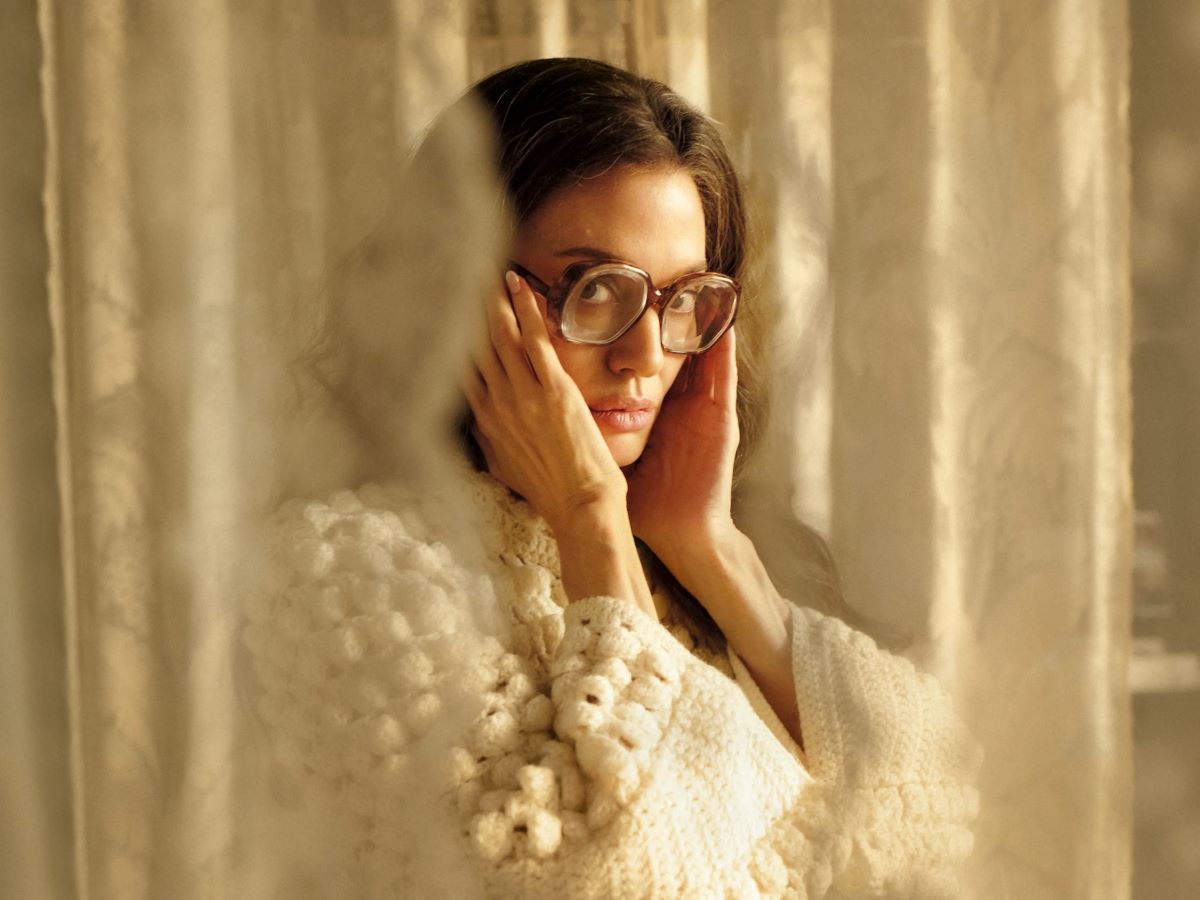Angelina Jolie admits that the most challenging aspect of portraying opera legend Maria Callas wasn’t the seven months of vocal training she underwent. Instead, it was something more unexpected: training the dogs featured in the film.
Laughing, Jolie recounts the experience while seated on a couch in an Upper East Side hotel alongside Maria director Pablo Larraín.
The biopic, filmed in Budapest, required her to work closely with dogs that responded only to Hungarian commands. Jolie spent hours off-camera learning the necessary phrases and rewarding the dogs with treats.
“There’s a lot of deeply emotional, heavy material in the film, but it also has charm,” Jolie shares. “It was important to capture her relationships, her home life, her quirks – and, of course, her poodles.”
Streaming now on Netflix, Maria dramatizes the reclusive final days of the iconic soprano, who passed away in 1977 at the age of 53.
The story unfolds through a series of flashbacks and documentary-style interviews, as Callas reflects on her art, her critics, and her tumultuous romances.
The film marks the third in a trilogy for Larraín, who previously directed Natalie Portman (Jackie) and Kristen Stewart (Spencer) to Academy Award nominations for their portrayals of Jacqueline Kennedy Onassis and Princess Diana, respectively.
Critics widely predict that Jolie, now 49, will earn her third Oscar nod for her performance, following her supporting actress win for Girl, Interrupted in 2000.
“When Angelina acts, she’s never self-conscious,” says Larraín, who describes the project as a deeply personal one. “Growing up, my mother took me to the opera twice a month.
Callas was someone who strived to make opera accessible, and with this film, I hope to do the same. Opera might seem elitist, but it doesn’t have to be.”
Callas’s complex relationship with her mother, Litsa (portrayed by Lydia Koniordou), is a central theme in the film. Litsa, who had wanted a son, resented Callas from birth.
Upon discovering her daughter’s vocal talent at age five, she pushed her into performing professionally, a dynamic that shaped Callas’s life and artistry.
“My relationship with my mother was the opposite,” says Jolie. “My life was deeply influenced by her love. Maria, however, endured a mother who was cruel and critical.

That constant pressure to be perfect left her feeling unlovable and robbed her of a sense of worth unless she succeeded.”
Jolie, whose own mother, actress Marcheline Bertrand, passed away in 2007, drew inspiration from their bond while working on Maria. “My mom wanted to act but stepped away to raise us,” she reflects.
“She loved creativity and would always write letters to my characters. Even when I was doing something silly like a music video, she’d engage with it.
“She instilled in me a love for exploring the human condition through characters,” Jolie continues. “Hollywood often focuses on public personas, but the real magic of acting is diving into what it means to feel and live.”
Jolie immersed herself in all things Callas to prepare for the role, including studying footage of the soprano to replicate her graceful movements and lyrical voice. The film blends Jolie’s own singing with authentic recordings of Callas.
“When I started singing, I’d feel faint after almost every session,” Jolie admits. “Opera requires such intense physicality – it’s like being an athlete. It was one of the most demanding things I’ve ever done.”
Larraín likens Callas’s performances to watching Simone Biles compete in gymnastics: extraordinary feats of dedication and skill.
But what resonates most with him is the film’s message about self-acceptance. “The story is about learning to let go of others’ expectations and singing for yourself,” he says.
Jolie echoes this sentiment, reflecting on her own experiences as a mother of six, whom she shares with ex-husband Brad Pitt.
She recalls how her mother used to keep her movies playing at home just to hear her voice. “Now I understand because I’m that mom. My kids do anything, and I watch it a thousand times. I’m their biggest cheerleader.”
Earlier this year, Jolie won her first Tony Award for producing the Broadway musical The Outsiders, based on S.E. Hinton’s novel. Her 16-year-old daughter, Vivienne, served as a production assistant and introduced Jolie to the project.
“Vivienne and I worked together on The Outsiders, and it reminded me of my mom,” Jolie says. “We’d wake up early, spend the day at the theater, and share a love for the creative process. Viv enjoys the hard work, the messy parts – and that’s where I see myself in her.”
Jolie concludes with a simple yet profound sentiment: “You have to love the messy, tough work – because that’s where the magic happens.”


